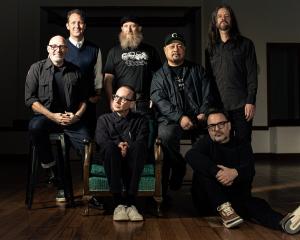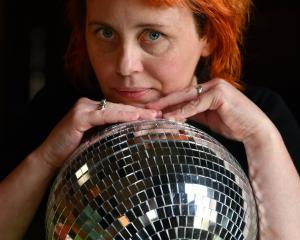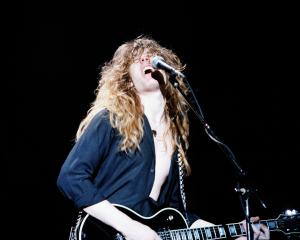Q First, can you please describe the fundamental aspects of bhangra music?
A Bhangra is a dance as well as a form of folk music that originates from Punjab, a region divided (between) India and Pakistan. Personally speaking, it is the sonic representation of my culture and the music that inspired me to be a DJ ... It's just great dance music - the soaring vocals and primal beats. It makes you move.
Q Can you describe its evolution from Punjabi folk music? How did this evolution occur? Was it a case of younger generations embracing it and altering it?
The bhangra I play is largely produced in the UK by second- and third-generation immigrants.
This style of music is produced in the same way modern dance and hip-hop music is. Its rhythm and tempos lend themselves to employ genres such as dancehall and hip-hop.
Q How has your background shaped your approach to music?
A I was born in the UK and came to the States just before my 5th birthday. I was exposed to Top 40 radio and Bollywood music. We also had one Punjabi folk record, which I loved. I also love new wave, The Beatles, Prince - they are all influences.
Q Were your parents Bhangra fans or did you discover it through other sources?
A I was around for the beginning of hip-hop. My mum bought me a tape by Malkit Singh and then I heard a mix by the producer Bally Sagoo that sampled Martin Luther King and Run DMC with Malkit Singh. It changed my life.
My parents are Punjabi, so I was familiar with the language used in bhangra, but I was not as familiar with the music.
Q Did your parents readily accept your decision to become a DJ? Or did they have other hopes/plans for you? Was that a difficult process? Indeed, have you always wanted to be a DJ, or did you discover this passion later in life? Was there some catalyst that set you on the path to your career?
A They have come to accept it. I guess they never saw this as a career. Neither did I, not at first. I just kept doing it and eventually I had to make a choice - day job or Djing. I quit my day job a few times before I could actually sustain myself on DJing, but now it's been 11 years. My parents, like many immigrant parents, just want financial stability and security for their children.
Q I understand dancing is intrinsic to bhangra music. Is that a prime reason for the longevity of your Basement Bhangra club night in New York?
A It is a type of music and a dance, so in some ways they are inseparable. But like any art form, each person accesses the art how they need to.
Some people understand the lyrics so they connect on that level; some just like to dance to it. As for the success of the club night, it's a combination of factors.
We have a great relationship with the space; we bring in new talent [like Panjabi MC's United States debut in 1998, as well as other acts like Tigerstyle] and we stay true to the music. Make it fun, make it easy - no drama.
Q You have been described as "one of the most influential South Asians in the US"; is that solely because of your music? Or does it, along with your 2009 New York City Lore People's Hall of Fame induction reflect a wider cultural role that you've been happy to embrace?
A I would think it's for the culmination of the work I do. I am very invested in talking about music and bringing it to new audiences. I have work with a number of community organisations, I give talks and lectures, and I am involved in music and sound design projects.
Q Were you in New York at time of the 9/11 terrorist attacks? Did that event and the subsequent public and political mood affect you and your music?
A Yes, I was here. There was a general sadness in New York, of course. We had an event on 9/20, just nine days later. It was a tough decision: how do you throw a party when such a tragic thing has happened?
There was a backlash for south Asian people. SOBs (the venue where we have Basement Bhangra) is across the street from a federal detention centre. The US military was on hand right after 9/11, but we kept doing our party.
Q Can you also explain how you got to DJ at the White House recently? What was the context of that performance? Did you get to meet President Obama?
A Yes, I did get to meet President Obama. I was asked by Kalpesh Modi (aka Kal Penn), who is a cultural liaison there and an old friend. There was an Asian Pacific Islander reception and Kal was involved in making arrangements for the event. A career high-point for sure.
Q What can New Zealand audiences expect from a DJ Rekha set? Will there be dance lessons for the uninitiated?
A My set will have a sampling of my tracks and then I will just see what the crowd is up for. I never plan my sets. But a good set is always a little bit of everything. I like to spin dancehall, bhangra, Bollywood and, of course, hip-hop.
I won't have the luxury of bringing a dance instructor, but I have a DVD I play alongside my set. There are plenty of dancing clues in it.
• Get oriented
DJ Rekha performs at the Dunedin Town Hall on Saturday, February 26, as part of Orientation 2011.












